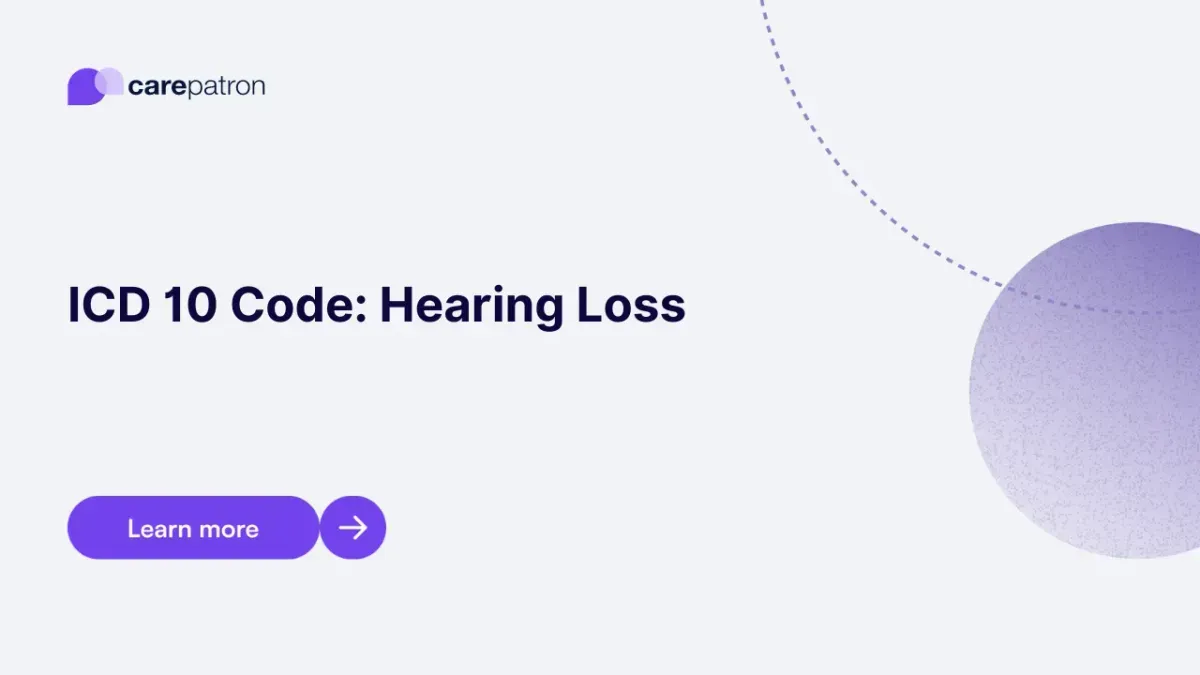
Hearing Loss ICD-10-CM Codes
Navigate the ICD-10 codes for Hearing Loss. Get comprehensive clinical info, and ensure coding accuracy.
Use Code
Commonly asked questions
Yes, sensorineural hearing loss is typically permanent because it involves damage to the inner ear or auditory nerve. While it cannot be cured, it can often be managed effectively with hearing aids or cochlear implants.
ICD-10 codes distinguish hearing loss by type—conductive, sensorineural, or mixed—and by laterality (unilateral, bilateral, or unspecified). Recent updates also include more specific codes that indicate the exact ear affected for improved accuracy.
No, hearing aids do not cure hearing loss but help improve hearing by amplifying sounds. They are an effective management tool for many people with mild to moderate hearing impairment.
EHR and practice management software
Get started for free
*No credit card required
Free
$0/usd
Unlimited clients
Telehealth
1GB of storage
Client portal text
Automated billing and online payments
